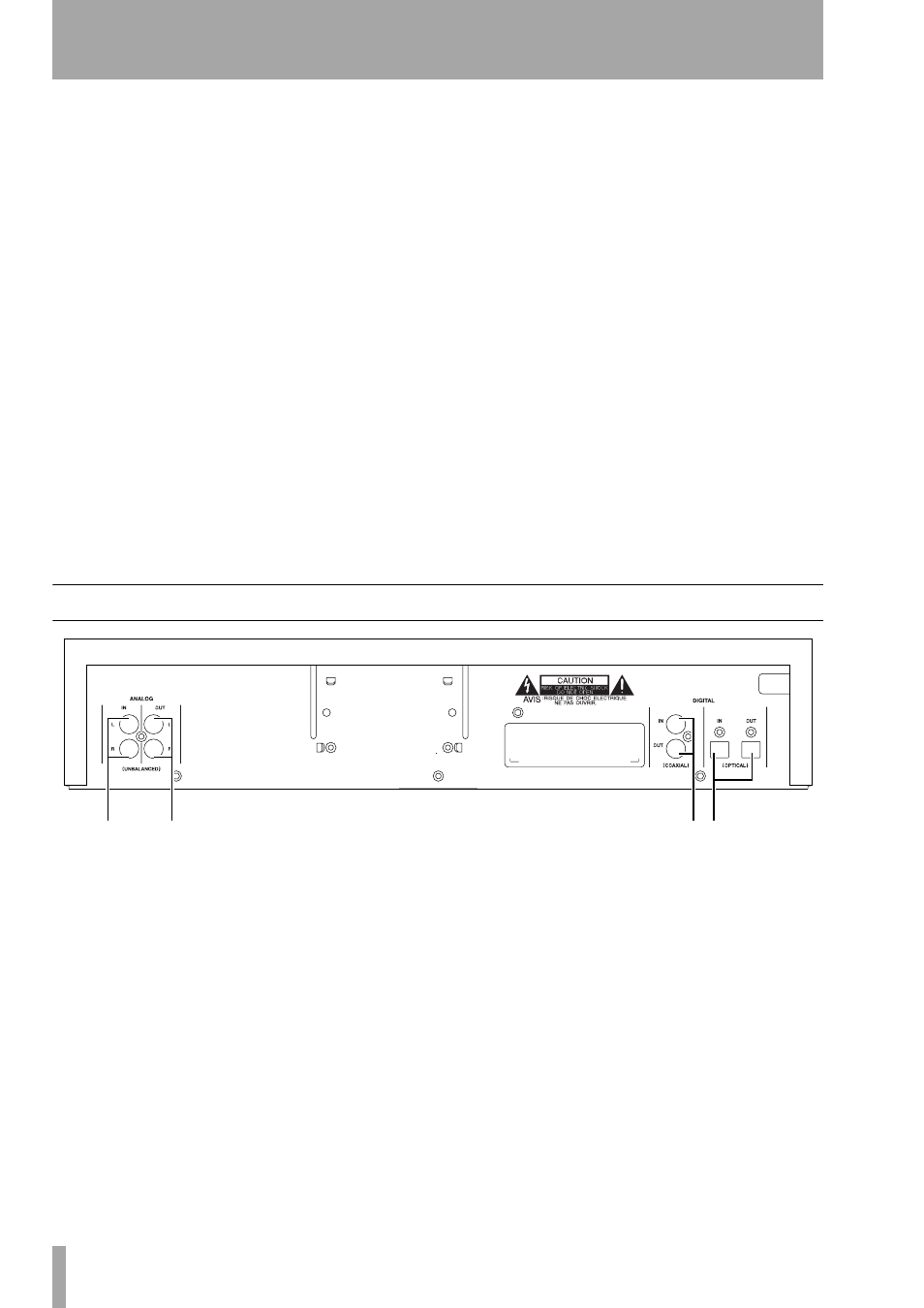Rear panel, 2 – features of the cd-rw750 – Teac CD-RW750 User Manual
Page 12

2 – Features of the CD-RW750
12
TASCAM CD-RW750
Owner’s Manual
Use the lower (outer) control to adjust the left signal,
and the upper (inner) control to adjust the right
signal.
Turning the controls clockwise past the “
5
” position
will boost the signals relative to their input level, and
turning them counterclockwise to a position below
“
5
” will cut the signals relative to their original input
level.
F
FINALIZE key
Use this key to finalize
recordable discs. See “Finalizing” on page 7 and
“Finalizing” on page 25 for details.
It also acts as a confirm key when entering CD TEXT
data (see “Titling (CD TEXT)” on page 27).
G
ERASE key
Use this key (with CD-RW discs
only) to erase tracks, or a whole disc, or to refresh a
“bad” disc, or to unfinalize a finalized disc. See
“Erasing” on page 25 for details.
It also acts as a delete key when entering CD TEXT
data (see “Titling (CD TEXT)” on page 27).
H
STOP key
Use this key to stop playback or
recording.
I
PLAY key
Use this key to start or resume
playback or recording.
J
PAUSE key
Use this key to pause playback
or recording.
K
RECORD key
Use this key to enter record
ready mode (see “Recording” on page 18 for details)
and also to enter manual track divisions (see “Manual
track division” on page 20).
L
SYNC REC key
Use this key to turn syn-
chronized recording on and off before starting to
record (see “Synchronized recording” on page 20 for
details).
M
FADER key
Use this key to start fade-in
recordings or to start a fade-out when recording (see
“Fade-in and fade-out” on page 23 for details).
It also changes the mode of the
MULTI JOG
control
between data entry and cursor when entering CD
TEXT data (see “Titling (CD TEXT)” on page 27).
Rear panel
N
ANALOG IN (L, R)
These RCA jacks
accept analog audio signals from suitably-equipped
units (–10 dBV, unbalanced).
O
ANALOG OUT (L, R)
These RCA jacks
output analog audio signals (at –10 dBV levels,
unbalanced) to suitably-equipped units.
P
DIGITAL COAXIAL (IN, OUT)
These two
RCA jacks accept and output digital audio in stan-
dard consumer format (SPDIF).
Q
DIGITAL OPTICAL (IN, OUT)
These two
TOSLINK optical connectors accept and output digi-
tal audio using optical fiber connectors.
Q
P
O
N
